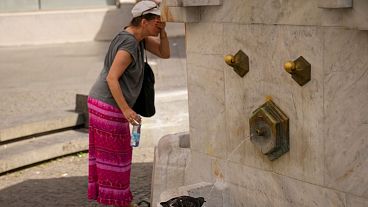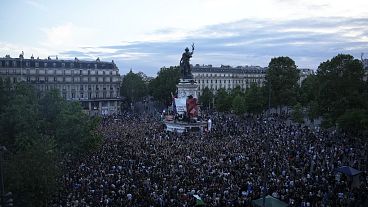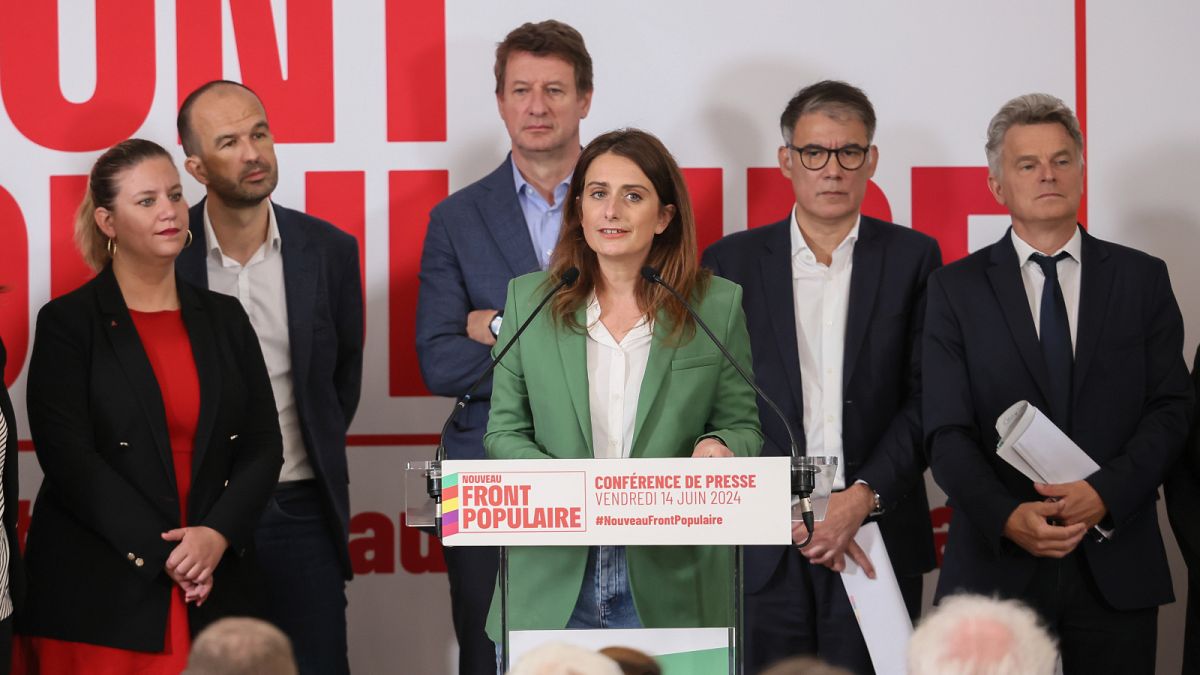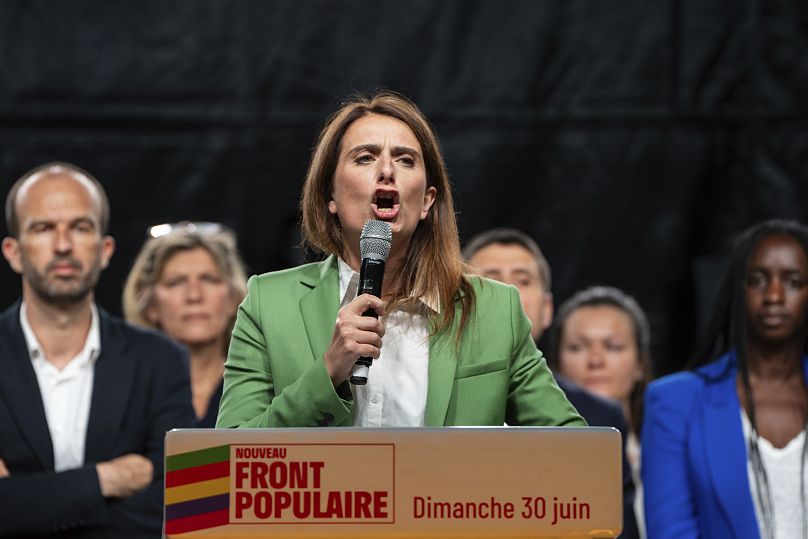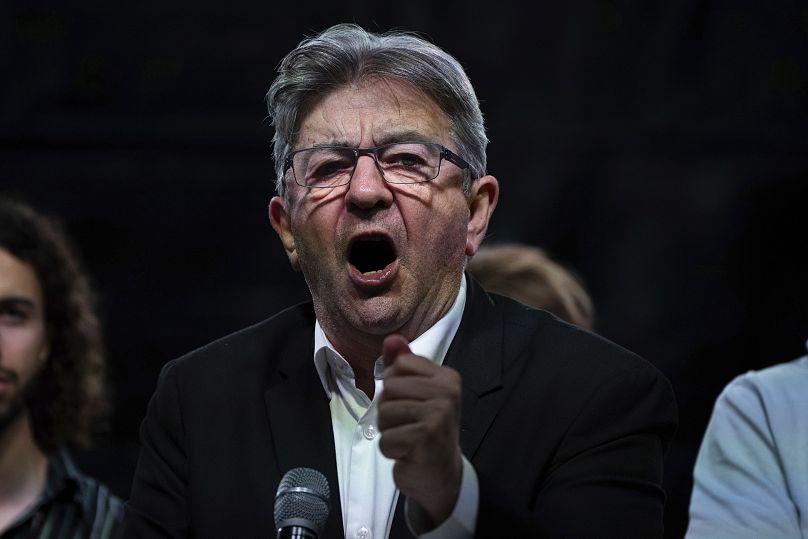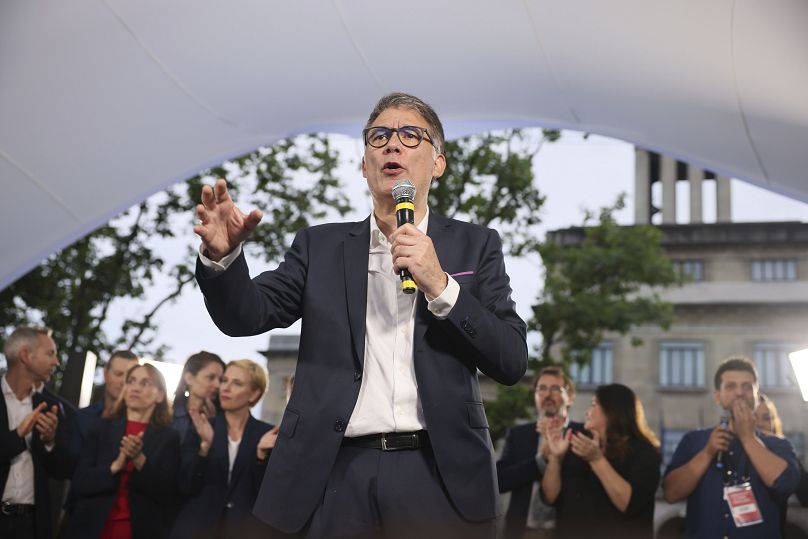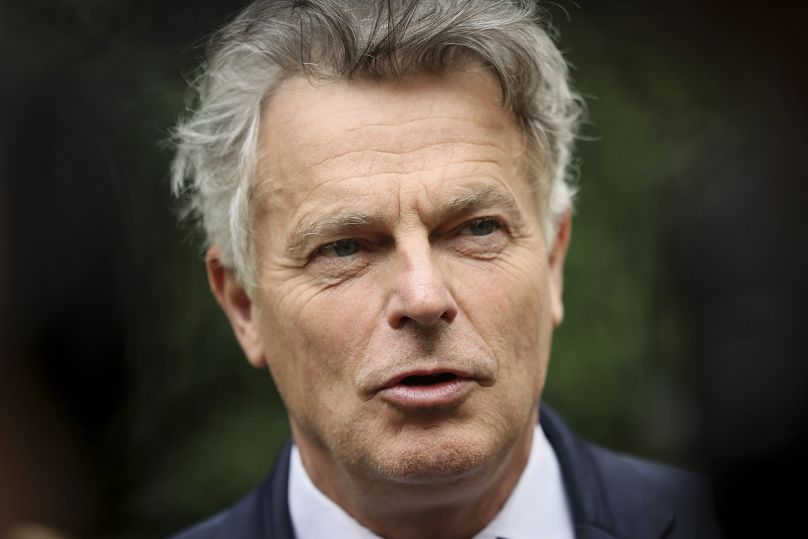While the far-right and centrist camps have clear frontmen leading the charge, multiple faces make up France’s left-wing coalition.
France's leftist alliance swept to victory on Sunday night, confounding analysts' expectations for a far-right surge in the legislative elections.
According to an Ipsos poll, the New Popular Front won between 177 and 192 seats in the National Assembly, out of a total 577.
The Ensemble party, meanwhile, is set to take 152 to 158 seats - a humiliation for incumbent President Emmanuel Macron. In third place, the far-right National Rally is predicted to secure 138 to 145 seats.
The last time left-wing parties joined forces to form a coalition, there was a clear leader in the figure of Jean-Luc Mélenchon.
But the far-left founder of France Unbowed (LFI) has been heavily criticised over his early comments on Israel and Gaza and recent statements seen as downplaying antisemitism.
This led to the dissolution of the New Ecological and Social People’s Union (Nupes) late last year, with left-wing parties running separate party lists during the June European elections.
That was until President Emmanuel Macron called a snap election, prompting the parties to try to join together yet again as the New Popular Front (NFP).
But the coalition has not had a clear frontrunner - with different party leaders joining debates and televised specials against the far-right National Rally (RN)’s Jordan Bardella and Prime Minister Gabriel Attal.
Here’s a look at some of the coalition’s leaders.
Greens - Marine Tondelier
Green Party leader Marine Tondelier has emerged as one of the most prominent voices in the left-wing campaign during this election.
The 37-year-old called early on for a “Republican front” against the far-right - a combined effort to withdraw candidates in the second round in favour of those best poised to beat the far-right.
She had also spoken out against members of Macron’s coalition “Ensemble” who said they were against both the National Rally (RN) and LFI, the latter of which is one of the leftist parties in the NFP, equating the two parties as extremist.
Tondelier has led France’s Greens since December 2022. She comes from the RN-run northern city of Hénin Beaumont, whose MP is Marine Le Pen, and where Tondelier has been a vocal opposition member in local politics.
In the past week, she also said this election’s debates were “very masculine” after her participation in a final debate on broadcaster BFMTV was scrapped in favour of individual interviews.
Tondelier, recognisable in her staple Green blazer, has been profiled as a leading new voice for the left wing by multiple French newspapers. Her blazer even has its own social media following.
Other key figures from the Greens include MP Sandrine Rousseau and former presidential candidate Yannick Jadot.
France Unbowed (LFI) - Jean-Luc Mélenchon
Leftist firebrand Jean-Luc Mélenchon founded his current party France Unbowed (LFI) in 2016 before running for president for the second time in the 2017 elections.
The 72-year-old politician has had a long career in politics: he became a senator at the age of 35, an EU lawmaker in 2009, and finished third place behind Emmanuel Macron and Marine Le Pen in the 2022 presidential election.
Recent polls have suggested that Mélenchon is now the least popular potential prime minister among French voters, with him being in particular targeted by the RN’s campaign messages.
Within his own party, Mélenchon has also faced criticism, with one well-known MP, François Ruffin, saying just this week that he would leave the party and calling the LFI founder a liability.
While Mélenchon is not a candidate in the election and did not represent the NFP coalition in any of the debates, he remains a prominent left-wing voice. He addressed party supporters after the first-round election results last week to announce the withdrawal of third-place candidates on the left.
Several other members of LFI have become visible faces of the coalition as well.
They include Mathilde Panot, president of the party in the National Assembly, Clémence Guetté, vice president of the group in the National Assembly who represented the NFP in a televised special this week, and Manuel Bompard, a former EU lawmaker and current MP, who represented the NFP during one of the two debates.
Socialist Party - Olivier Faure
Socialist Party leader Olivier Faure was the first person to debate during the legislative elections on behalf of the NFP.
Trained as a lawyer, he became an advisor to labour minister Martine Aubry in 1997 and later François Hollande’s deputy when the former president ran the Socialist Party.
Faure was first elected as an MP in 2012 and began leading the Socialists in 2018. By that time, the party had lost much of its support, with Macron gaining a majority in the National Assembly with his own presidential party.
At the local level, the Socialists remain a political force. They also recently came ahead of LFI in the European elections with a coalition list led by Raphaël Glucksmann and his movement Place Publique.
Glucksmann, an EU lawmaker, has also been a familiar face in this legislative campaign, speaking out after the results in the first round of the elections and saying that the vote represented a referendum on whether the far-right would take power.
Communists - Fabien Roussel
Fabien Roussel has led France’s Communist Party since 2018 after being first elected MP in 2017.
He grew up in northern France and worked as a journalist before going into politics. He joined the movement of young communists early on.
Roussel lost his seat in the first round of the snap legislative elections to an RN candidate, and he has been less present during the campaign than other members of the coalition.
He said this week that he would continue running the Communist Party but his loss is an example of the difficulties for left-wing candidates across France pitted against the far-right.


